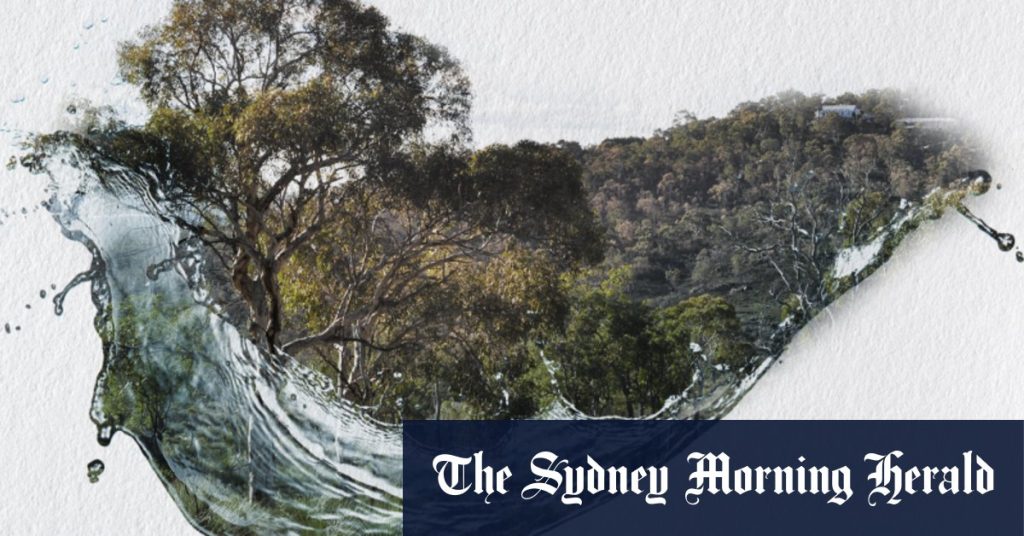The controversy surrounding water extraction rights in Western Australia’s Perth Hills region highlights the increasing tension between commercial interests and community concerns regarding sustainable water management. A local orchardist, facing financial hardship due to unforeseen circumstances impacting his fruit production, proposed selling water extracted from his property’s bore as a temporary measure to sustain his business. This proposal sparked community debate and raised questions about the long-term implications of allowing private landowners to commercially exploit groundwater resources. The orchardist emphasized the temporary nature of his plan, asserting it would cease once normal operations resumed, and denied any formal agreements with bottling companies. However, the situation draws parallels to the recent controversy surrounding Coca-Cola’s extraction of water from a nearby Karragullen bore, raising community anxieties about the potential for large-scale commercial water extraction.
The Karragullen bore, previously used by Coca-Cola for bottling operations, became a focal point for community activism in 2024. While the company defended its practices, mounting public pressure eventually led to a voluntary suspension of its water extraction activities. Community members, led by campaigner Meg Travers, argued that the practice of extracting groundwater for commercial bottling was inherently unsustainable and called for more comprehensive research into its ecological impact. Travers criticized the perceived injustice of multinational corporations profiting from a publicly owned resource, particularly in a region experiencing increasing water scarcity and where conservation messages are prevalent. Coca-Cola, in response to inquiries, stated it had no immediate plans to resume operations at the Karragullen bore and affirmed its commitment to responsible water management. However, the company’s previous actions, coupled with the orchardist’s proposal, fueled community fears about the potential normalization of commercial water extraction in the area.
The orchardist’s application to the City of Kalamunda to extract and sell water from his property sparked further community opposition. Residents expressed concerns that commercial water extraction, unlike irrigation, permanently removes water from the local ecosystem, disrupting groundwater recharge and potentially impacting nearby waterways. They argued that the environmental impact assessment accompanying the application was insufficient and failed to address the long-term risks to the aquifer. Furthermore, concerns were raised about the potential increase in noise pollution, road damage, and decreased quality of life for residents due to the anticipated increase in truck traffic associated with water transportation.
The orchardist’s case highlighted the distinction between water usage for agricultural purposes, such as irrigation, and its extraction for commercial bottling. Local residents argued that irrigation, while consuming water, contributes to local ecosystem health through processes like evapotranspiration and soil infiltration, which replenishes groundwater supplies. In contrast, bottling involves the permanent removal of water from the local system, preventing its return to the aquifer or contribution to surface water flows. This distinction underscores the importance of considering the specific purpose of water extraction when evaluating its environmental impact. Public submissions to the City of Kalamunda reflected widespread community opposition to the orchardist’s proposal. One resident emphasized the fundamental difference between irrigation, which recycles water within the local ecosystem, and bottling, which permanently removes it. The submission highlighted the potential consequences of water extraction for groundwater recharge and the health of nearby waterways, urging a more thorough assessment of the long-term risks to the aquifer.
The escalating debate surrounding water extraction in the Perth Hills region has prompted calls for legislative action. Darling Range Liberal candidate Paul Mansfield initiated a petition demanding new legislation that would require companies to pay for water extracted for commercial purposes. This proposal reflects growing public sentiment that companies profiting from a public resource should contribute financially to its management and conservation. The petition aims to ensure that the cost of water extraction reflects its true value, accounting for its environmental impact and the need for sustainable management practices.
The community’s response to the orchardist’s application and the broader issue of commercial water extraction underscores the growing awareness of water scarcity and the importance of responsible resource management. The controversy surrounding Coca-Cola’s operations at the Karragullen bore serves as a cautionary tale, demonstrating the potential for conflict between corporate interests and community concerns regarding environmental sustainability. The City of Kalamunda faces a significant decision regarding the orchardist’s application, one that will likely set a precedent for future water extraction proposals in the region. The outcome of this decision, coupled with the ongoing debate about appropriate legislation, will shape the future of water management in the Perth Hills, reflecting the evolving relationship between commercial interests, community concerns, and the imperative of environmental stewardship. The community’s active engagement in this issue signifies a growing recognition of the value of water as a shared resource and the need for its equitable and sustainable management for the benefit of all.

